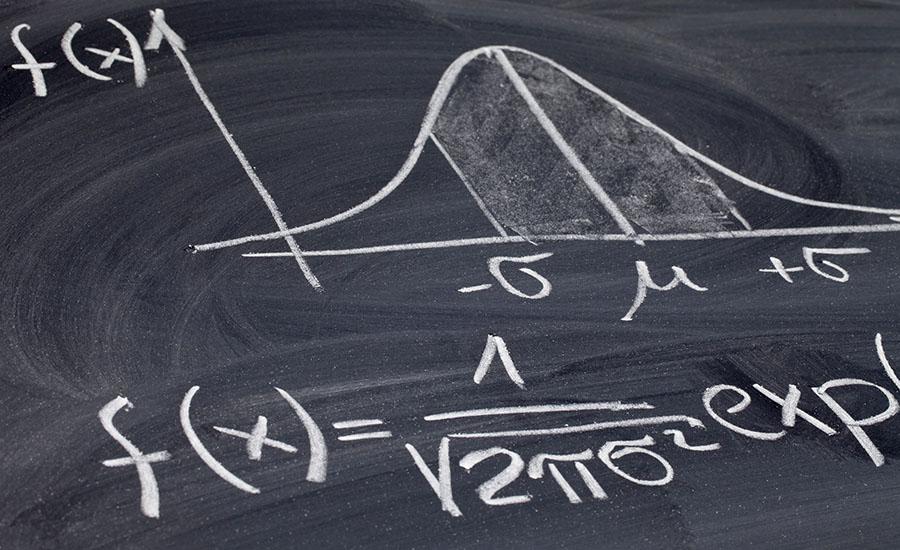Grades:
6th Grade
In this 1st lesson in a series of 3, students learn about the Great Pacific Garbage Patch. They create a model and write and defend a claim about humanity's ability to mitigate the problem. This
Grades:
4th Grade
An ELA Lesson Plan focusing on Stormalong story with integration on Science and Engineering. Understanding characters, figurative language (hyperbole) and comparing two stories are the focus of this
Grades:
6th Grade
Students will explore energy, electricity, and engineering in this hands-on lesson using the Kidwind kit to create a wind turbine.
Grades:
6th Grade, 7th Grade, 8th Grade
This middle school lesson covers the concept of air resistance. Students work in teams of 3 with a list of materials to design, build, and test 3 parachutes that will maximize the air resistance of a
Grades:
5th Grade
In this lesson, students will be able to analyze and communicate evidence of the effects of balanced and unbalanced forces on the motion of objects. They conduct research to provide evidence of the
Grades:
5th Grade
Within this hands-on lesson, students use the engineering design process to create a device that will protect an egg from a two-story drop. They work within small groups and test their creation and
Grades:
8th Grade
In this lesson, students are challenged to design and build a controlled-release tablet, which will be made from different colored bath tablets and a variety of water-soluble plastics. First, they
Grades:
10th Grade, 11th Grade, 12th Grade
This lesson plan includes activities for a full unit on Fission and Fusion, which are included in our state science standards. Students will create models of fusion and fission using a free online
Grades:
5th Grade
In this fun lesson, students create models of the Earth, sun, moon, and planets that can go on robots. They experiment with light and movement to demonstrate the rotation of sun, earth, and moon using
Grades:
9th Grade, 10th Grade
In this lesson plan, students make use of their knowledge about homoestasis, osmosis, and types of solutions to design their own science investigation that will enable them to prove and answer: Why it
Grades:
3rd Grade, 4th Grade
This hands-on lesson is based on the book, "If I Built a House". Students use recyclables to create a 'dream' house which is based on their likes and interests. Using the Engineering Design Process as
Grades:
5th Grade
In this creative lesson, students will create a simple machine to retrieve objects through a makeshift storm drain. There is a potential literacy integration and a focus on the engineering design
Grades:
6th Grade, 7th Grade, 8th Grade
In this engaging lesson, students will examine the surface of the Moon to consider hazardous conditions that NASA may find there. Then, they will investigate several hazards (dust, boulders, and
Grades:
6th Grade, 7th Grade, 8th Grade
This is an 8-lesson unit that is designed to be used together to learn about the health and diversity of your local watershed by placing leaf packs into a water source (natural or man-made ponds
Grades:
3rd Grade
In this lesson, students will create a unique animal and then describe & draw it in a specific habitat. The students will determine what adaptations the animal needs to survive in the habitat and
Grades:
6th Grade, 7th Grade, 8th Grade
In this hands-on lesson, students use fruit snacks or candy to create models of the molecules used and produced in cellular respiration.
Grades:
3rd Grade
In this lesson, students will research a variety of habitats. They will then use their research to document what they learned using technology. This information will be used in future lessons to build
Grades:
4th Grade
In this hands-on lesson, students will construct a model of a volcano and produce lava flows. They will also observe, draw, record, and interpret the history and stratification of an unknown volcano
Grades:
6th Grade, 7th Grade, 8th Grade
This is an 8-lesson unit that is designed to be used together to learn about the health and diversity of your local watershed by placing leaf packs into a water source (natural or man-made ponds
Grades:
5th Grade
In this engaging and hands-on lesson, students will learn how crime scene investigators use science and engineering techniques and technology to solve crimes. Students will match substances based upon
Grades:
3rd Grade
This lesson is the initial planning, sorting, and planting lesson to get Our Plot of Sunshine Curriculum started within a 3rd grade classroom. Can be modified for other grades, but math within this
Grades:
6th Grade, 7th Grade, 8th Grade
This is an 8-lesson unit that is designed to be used together to learn about the health and diversity of your local watershed by placing leaf packs into a water source (natural or man-made ponds
Grades:
9th Grade, 10th Grade, 11th Grade, 12th Grade
Students will develop a deep understanding about environmental sustainability while creating an implementation plan for a UN sustainability goal. This lesson focuses on science and technology, with
Grades:
6th Grade, 7th Grade, 8th Grade
In this hands-on lesson, students will consider what they think about several different closed systems. Then students will design and carry out investigations of living things to inform their closed
Featured Lesson Plans
Check out these notable lesson plans.

Featured
Arizona Animal Crossing
Grades:
6th Grade
In this lesson, students use the engineering process to solve a real-world problem along the I-10 in Arizona. Students analyze data about roadkill along a particular stretch on the I-10 just outside

Grades:
4th Grade
Go through different STEM, reading, and writing activities with Roz and her friends in The Wild Robot. Students will problem solve, participate in discussions, and learn about artificial intelligence

Grades:
9th Grade, 10th Grade, 11th Grade, 12th Grade
This lesson uses a Modeling Instruction approach to developing the graphical and mathematical relationships for Circular Motion for students in Grades 9-12. Students design an experiment, collect data
